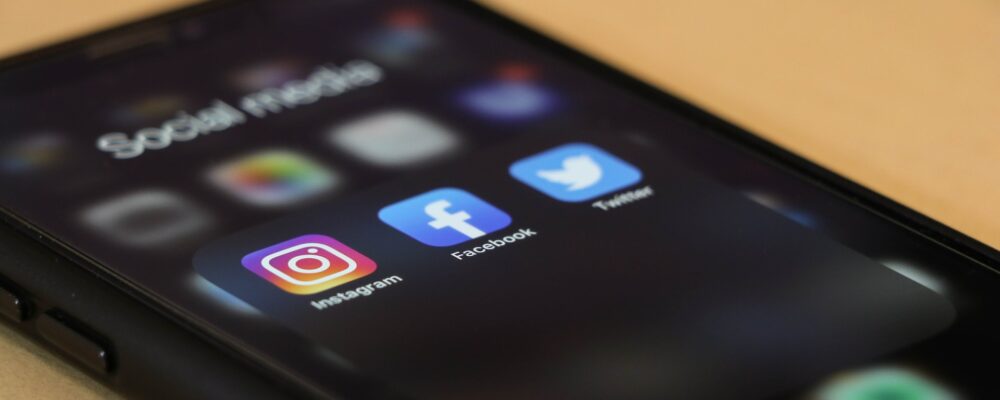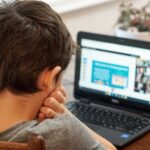As our world becomes increasingly connected, social media has become a pervasive influence in today’s society. For students navigating the ups and downs of academic life, this can positively and negatively affect productivity levels. This article will explore how social media influences student productivity and strategies for achieving a balance between the two.
Positive Effects of Social Media on Student Productivity
On one hand, there are many ways that social media usage can positively affect student performance: It provides an excellent platform for improved communication and collaboration among peers, with tools like group messaging apps or discussion boards available at our fingertips around the clock to make projects run more smoothly than ever before—not to mention increased access to educational resources, such as online course materials or podcasts from leading experts in various fields, offering invaluable insight into complex topics.
On top of these practical benefits lies another critical advantage: heightened creativity and self-expression opportunities offered through platforms like Twitter or Instagram, where students can share and showcase their work with peers, gaining feedback while engaging in meaningful conversations with those from different backgrounds.
Adverse Effects of Social Media on Student Productivity
But the positives of social media for student productivity are often overshadowed by its potential distractions. Its addictive nature is difficult to resist; though notifications might be disabled, our human impulse to check or respond quickly causes us to lose precious time—or even worse, multitasking becomes an issue when trying to complete projects or study material. In addition, there’s a heightened pressure associated with comparison issues created through these platforms due to of unrealistic standards that some people promote online, leading to self-esteem issues and poorer mental health if not appropriately managed.
Also, with the prevalence of online networking and micro-blogging sites, it’s easy for students to become overwhelmed with available sources of information. Managing time between courses, extracurricular activities, or social obligations can quickly disorganize a student without proper management techniques.
Strategies for Balancing Social Media Use and Productivity
While the effects of social media on productivity can be significant, finding a balance is possible if one follows effective strategies from both sides: firstly, creating healthy digital diets by setting boundaries around your usage (such as allowing yourself specific times throughout the day to check notifications) while also utilizing helpful productivity apps that limit access when necessary. This, in combination with developing strong time management skills, is essential for adequately navigating the realm of student productivity.
Creating to-do lists and establishing routines that allow you to prioritize tasks according to deadlines or personal goals are essential in terms of self-control; utilizing mindful study techniques can also be helpful when focusing on complex topics and managing daily stress levels.
Additionally, there are various ways to cope with problematic social media usage. Implementing digital detox periods and actively monitoring how much time is spent on specific platforms (or even taking breaks altogether) can go a long way to establishing healthy boundaries between student productivity and leisurely activities like social networks. Furthermore, institutions have also started providing mental health services online to help those struggling with self-esteem issues or unfavorable comparisons associated with their peers’ social media posts. Emphasizing digital well-being while promoting mindful use of technology can significantly assist students academically and socially—improving the overall quality of life.
Case Studies and Experiences
A variety of case studies exist across campuses where students affected by excessive online engagement share personal stories about improved performance owing to reduced dependence on such sources for entertainment purposes or finding alternative methods for staying connected among peers without going overboard.
Also, there are numerous success stories of students whose productivity levels have risen significantly after implementing strategies mentioned previously: creating study schedules that prioritize tasks, setting boundaries with social media use, and developing mindful techniques to handle workloads more efficiently; this even extends beyond the individual level—as some educational institutions around the world introduce policies related to digital well-being among students by providing informative resources or limiting access on campus for them to focus on their studies instead.
Conclusion
It’s essential for us all—especially those navigating through their student lives while utilizing technology at every turn—to recognize how much power these tools can hold over our everyday decisions and behaviors.
Social media offers a fantastic platform full of potential benefits but must be used consciously and responsibly if we want its advantages to outweigh its disadvantages regarding academic performance. Establishing healthy habits within ourselves is essential, and advocating such principles amongst peers struggling with the same issue is should be encouraged.
At its core, student productivity and commitment to personal goals are individual responsibilities—a goal that social media tends to distract us from if not appropriately managed. Everyone plays a role in making positive changes in this regard: educational institutions, families, and especially students themselves—as they strive for success both inside and outside their academic journeys.








